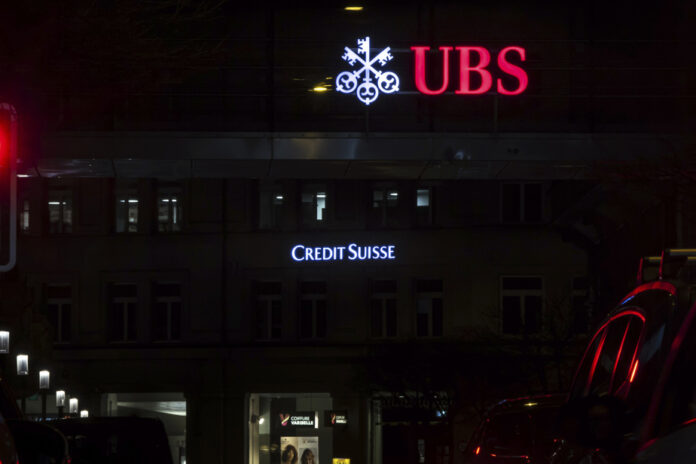(Zurich, Geneva) Switzerland’s largest bank UBS is being pushed to buy its rival Credit Suisse by the authorities to avoid a debacle, several media say on Saturday, in an attempt to reassure investors and avoid a contagious panic on the markets Monday.
UBS will buy Credit Suisse and the deal will be sealed on Sunday during an extraordinary meeting of the government and the leaders of the two banking giants in Bern, the generally well-informed daily Blick said on Saturday.
He underlines that the authorities have no other choice, due to the enormous pressure exerted by Switzerland’s major economic and financial partners who fear for their own financial centre.
Bruno Le Maire, the French Minister of Finance made the message clear in Le Parisien: “We are now waiting for a definitive and structural solution to the problems of this bank”.
The US Treasury also said it was following the case closely.
The Swiss market opens at 4 a.m. (Eastern time) on Monday, everything will have to be settled by then for the bank perceived as a weak link in the sector.
At the close of trading on Wednesday after a record drop, Credit Suisse was worth just 7 billion Swiss francs (C$10.4 billion), a pittance for a bank that is one of — like UBS — the 30 establishments around the world that are considered too important to allow them to fail.
But according to the Financial Times and Blick, the bank’s customers withdrew 10 billion Swiss francs (CDN 14.8 billion) in deposits in a single day late last week. A tangible sign of distrust of the establishment.
So how to reassure? According to the Bloomberg agency, which cites anonymous sources, UBS is demanding that the public authorities bear legal costs and potential losses which can amount to billions of francs.
The discussions stumble on the investment bank, indicates the financial agency, one of the scenarios under study being a takeover only of asset and wealth management with a sale of the investment bank.
The discussions also focus on the fate of the Swiss branch of Credit Suisse, one of the profitable parts of the group which lost 7.3 billion Swiss francs last year and still expects “substantial” losses in 2023.
This branch brings together retail banking and loans to SMEs. One of the avenues considered by analysts is that of an IPO, which would also avoid massive layoffs in Switzerland due to duplication with UBS’s activities.
On Wednesday, the distrust of investors and partners prompted the Swiss Central Bank to lend 50 billion Swiss francs to breathe new life into Credit Suisse and reassure the markets. However, the respite was only short-lived.
Buying the bank would not be expensive today, but an acquisition of this size is of formidable complexity, especially when it is done in a hurry.
Credit Suisse has just experienced two years marked by several scandals which revealed, by management’s own admission, “substantial weaknesses” in its “internal control”.
The federal financial market supervisory authority (Finma) had accused him of having “seriously breached his prudential obligations” in the bankruptcy of the financial company Greensill which marked the beginning of his setbacks.
By contrast, UBS, which spent several years recovering from the shock of the 2008 financial crisis, is beginning to reap the rewards of its efforts, and according to several media outlets the bank had no intention before the weekend of embark on the Credit Suisse adventure.
The Competition Commission could also raise eyebrows depending on the configuration of the takeover.
At the end of October, Credit Suisse had unveiled a vast restructuring plan providing for the elimination of 9,000 positions by 2025, or more than 17% of its workforce.
The bank, which employed 52,000 people at the end of October, plans to separate investment banking from the rest of its activities to refocus on its most stable parts, including wealth management.
But as Blick points out: “Everything points to a Swiss solution this Sunday. And when the stock market opens on Monday, Credit Suisse could be a thing of the past.”















